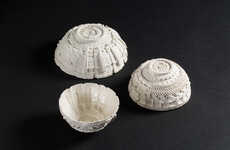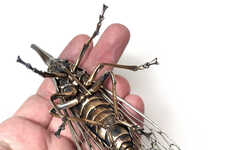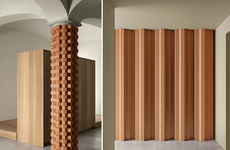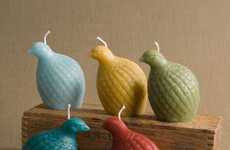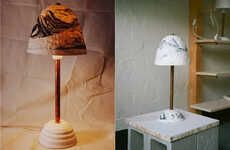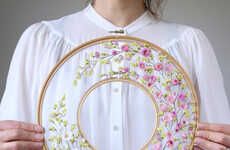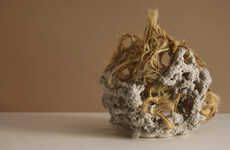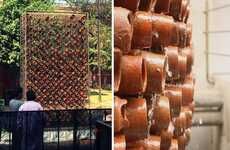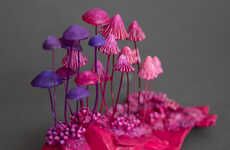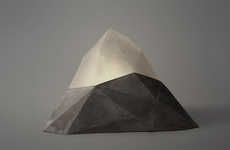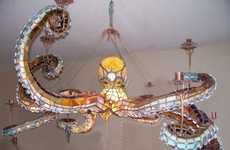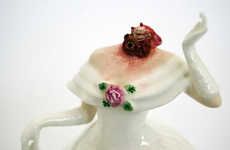
Artist Aganetha Dyck Collaborates with Bees for Her Sculptures
Meghan Young — August 28, 2013 — Eco
References: aganethadyck & beautifuldecay
Beautiful Decay is right when they point out that artist Aganetha Dyck doesn't necessarily create her own works of art, she essentially facilitates the process of art. Working in joint effort with endangered species number one, or so it feels, Aganetha Dyck's collection of vintage porcelain figurines has been covered in a sticky honeycomb surface.
Hailing from Canada with a strong interest in environmental issues, Aganetha Dyck works with sculptures that are broken or damaged in some way. Working with beekeepers, the honeybees enhance what would have been discarded with their own unique patterns. Aganetha Dyck reveals, "I choose damaged objects because honeybees are meticulous beings, they continuously mend anything around them and they do pay attention to detail." She encourages the process with wax and honey.
Hailing from Canada with a strong interest in environmental issues, Aganetha Dyck works with sculptures that are broken or damaged in some way. Working with beekeepers, the honeybees enhance what would have been discarded with their own unique patterns. Aganetha Dyck reveals, "I choose damaged objects because honeybees are meticulous beings, they continuously mend anything around them and they do pay attention to detail." She encourages the process with wax and honey.
Trend Themes
1. Collaborative Art - Exploring opportunities for artists to work alongside other living beings to create works of art.
2. Eco-friendly Sculptures - Creating beautiful sculptures while being mindful of the impact on the environment.
3. Sustainable Art - Integrating sustainable practices into the creation of art, resulting in unique and environmentally conscious pieces.
Industry Implications
1. Art - Opportunities to collaborate with other species and create unique pieces of art that are both beautiful and environmentally friendly.
2. Environmental Conservation - Exploring ways to integrate art into environmental conservation efforts, such as using damaged objects and collaborating with animals, to raise awareness and promote conservation initiatives.
3. Sustainability - Incorporating sustainability into art and design, resulting in unique and eco-friendly products that appeal to the socially and environmentally conscious consumer.
4.7
Score
Popularity
Activity
Freshness


